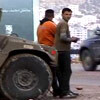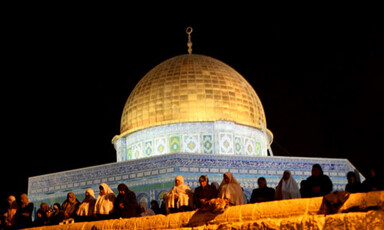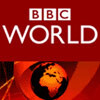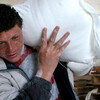
Video: Youth Used as Human Shields in Balata Camp
14 April 2007
The Fourth Geneva Convention states that “The presence of a protected person may not be used to render certain points or areas immune from military operations” and in 2005 the Israeli High Court ruled that “You cannot exploit the civilian population for the army’s military needs, and you cannot force them to collaborate with the army.” However, this video shot in Balata Refugee Camp on 11 April 2007 makes it clear that Israeli occupation forces are still employing this illegal tactic, placing the Palestinian civilian population at great risk. Read more about Video: Youth Used as Human Shields in Balata Camp








